Alaa Abdel Fattah: Family say jailed British-Egyptian activist is alive
- Published
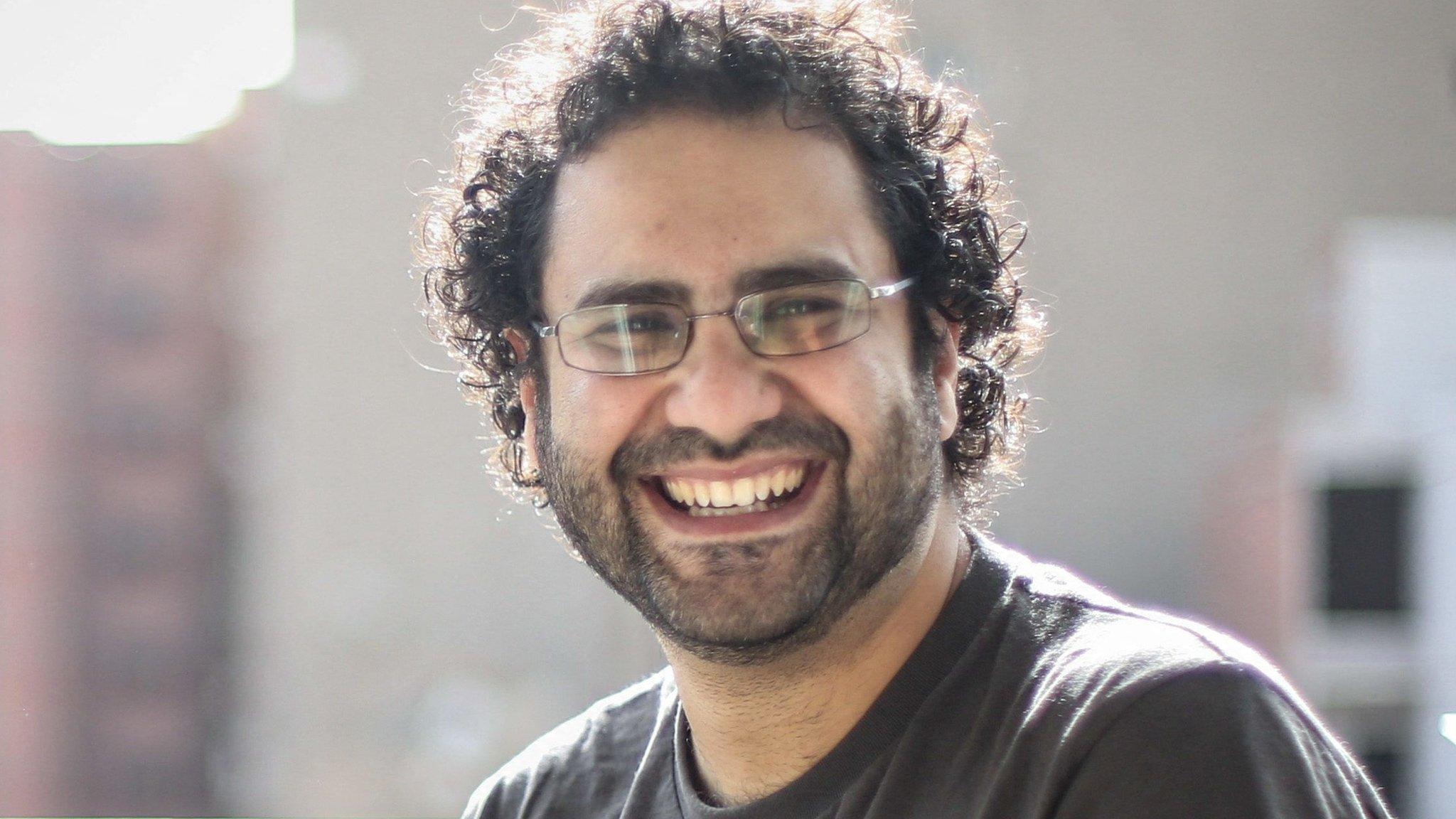
Last Thursday, Alaa Abdel Fattah's family said they had been told he had "undergone a medical intervention"
The family of jailed British-Egyptian pro-democracy activist Alaa Abdel Fattah, who is on hunger strike, say they have received proof he is alive.
A letter to his mother written two days ago says he is "drinking water again" and "receiving medical attention".
"I can sleep today without nightmares," his sister said in response.
His family had not heard from him since he started refusing water on 6 November to coincide with the start of the COP27 climate conference in Sharm el-Sheikh.
Last Thursday, his mother said she had been told by officials at Wadi al-Natroun prison, north-west of Cairo, that he had undergone an unspecified "medical intervention with the knowledge of a judicial authority".
Prison authorities also denied his lawyer access on Thursday, Sunday and again on Monday despite permits being granted by the prosecutor general.
The public prosecution said a medical report had shown Abdel Fattah to be in "good health", without providing any proof.
The 40 year old, who is imprisoned for allegedly "spreading false news", has become a symbol of the 60,000 political prisoners believed by human rights groups to be languishing in Egyptian jails. Egypt insists there are none.
Allow X content?
This article contains content provided by X. We ask for your permission before anything is loaded, as they may be using cookies and other technologies. You may want to read X’s cookie policy, external and privacy policy, external before accepting. To view this content choose ‘accept and continue’.

The short letter that Abdel Fattah wrote to his mother, Laila Soueif, is dated 16:00 (14:00 GMT) on Saturday.
"How are you, Mama? I'm sure you're really worried about me," it says.
"From today I'm drinking water again so you can stop worrying until you see me yourself. Vital signs today are OK. I'm measuring regularly and receiving medical attention."
Abdel Fattah promises to write a longer letter on the "day of provisions", and requests that his mother bring him an MP3 player, vitamins and effervescent salts to the prison.
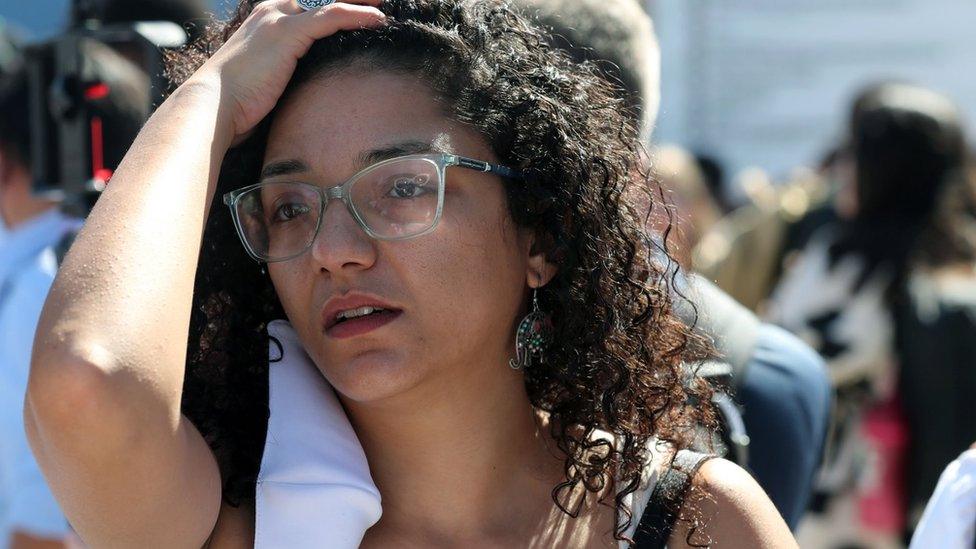
Abdel Fattah's sister, Sanaa Seif, is in Sharm el-Sheikh to lobby for his release
"Today is the first day I've been able to take a proper breath in eight days," said his sister, Sanaa Seif, a human rights defender who has herself been imprisoned three times and who is in Sharm el-Sheikh to lobby for his release.
"Now we know he's alive. I'd know his handwriting anywhere. But when I read [the letter] again and again it leaves me with more questions. Why have they been refusing his lawyer access to him, even with a permit?
"Why did they hold this letter back from us for two days? Is it just cruelty to punish the family for speaking up?"
Ms Seif noted that her brother was still on hunger strike, still being denied access to British consular officials, and that he was still "arbitrarily detained with no end in sight".
"Even with so much international attention on Alaa the Egyptian authorities can still just disappear him. He needs to be on a plane to London and only then will we allow ourselves to feel true relief."
(July 2022) Alaa Abdel Fattah: 'He’s certain he’ll never come out of prison alive'
Abdel Fattah, who obtained British citizenship last year through his London-born mother, began a partial hunger strike seven months ago in a bid to pressure authorities to at least allow British diplomats to visit him.
With them continuing to refuse consular access or even acknowledge his British citizenship, he wrote in a letter on 31 October that he would only drink water until COP27 opened, and then stop even doing that.
As concerns about Abdel Fattah's health mounted, UK Prime Minister Rishi Sunak said he had called for his urgent release at a meeting with Egyptian President Abdul Fattah al-Sisi in Sharm el-Sheikh last Monday.
US President Joe Biden, French President Emmanuel Macron, German Chancellor Olaf Scholz and UN High Commissioner for Human Rights Volker Türk have also urged Egypt to free Abdel Fattah.
UK Foreign Secretary James Cleverly told the BBC's Today programme on Monday that he was keeping "a very, very close eye on this case".
"Our officials in Egypt regularly engage with the Egyptian authorities to seek consular access so we can check on his health status," he said.
"The Egyptians do not recognise him as a British citizen. We disagree with them on that and we have highlighted this disagreement to them at every level up to and including the prime minister in his discussions with President Sisi."
Abdel Fattah's other sister, Mona Seif, tweeted that the comments were "disappointing", external and seemed to be "a way of shoving aside [the Foreign Office's] responsibility towards Alaa and our family".
"The Egyptian state always recognizes dual nationals," she added. "Last year, when Alaa's younger sister [Sanaa] was in prison they had no problem recognizing her UK citizenship and allowing her consular visit."
Related topics
- Published10 November 2022
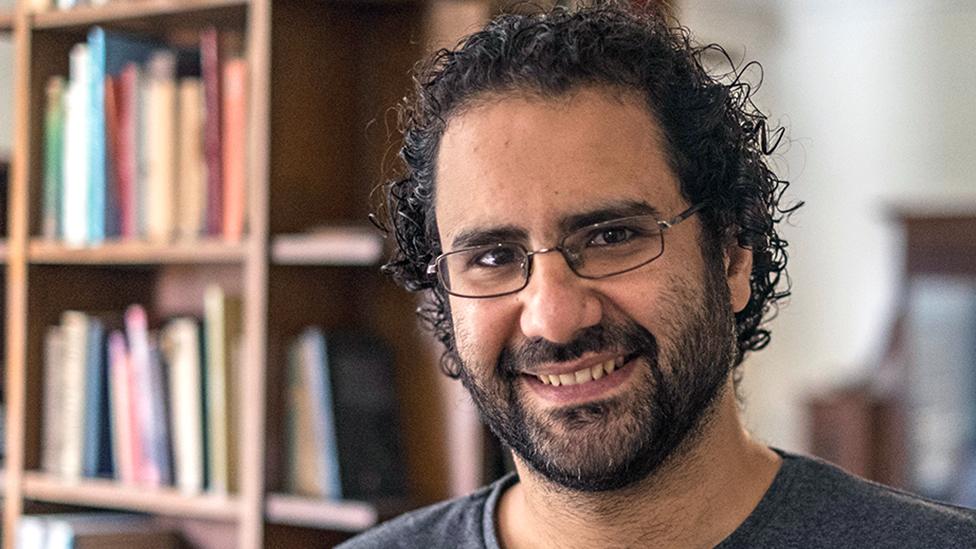
- Published9 November 2022

- Published7 November 2022
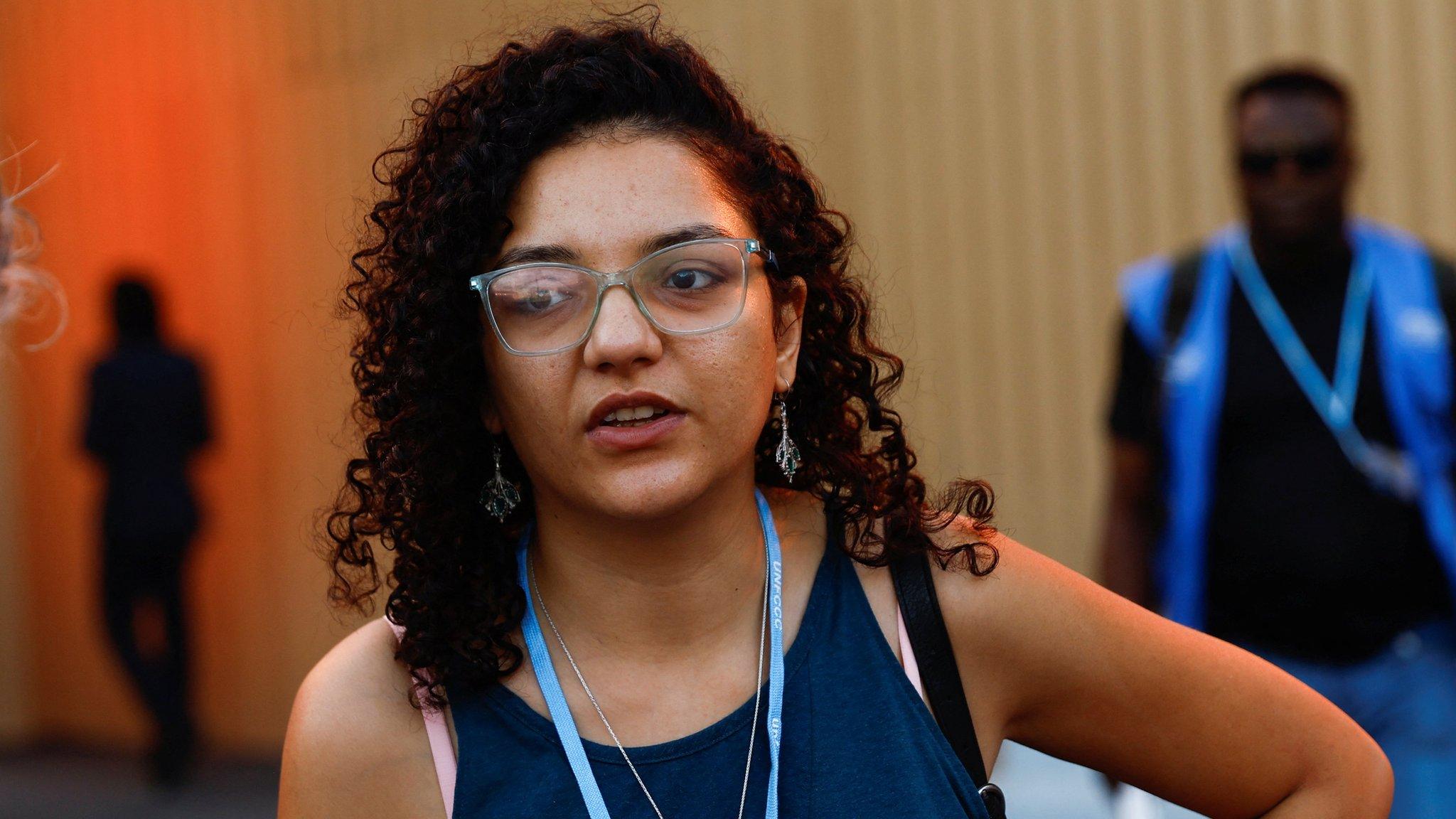
- Published7 November 2022
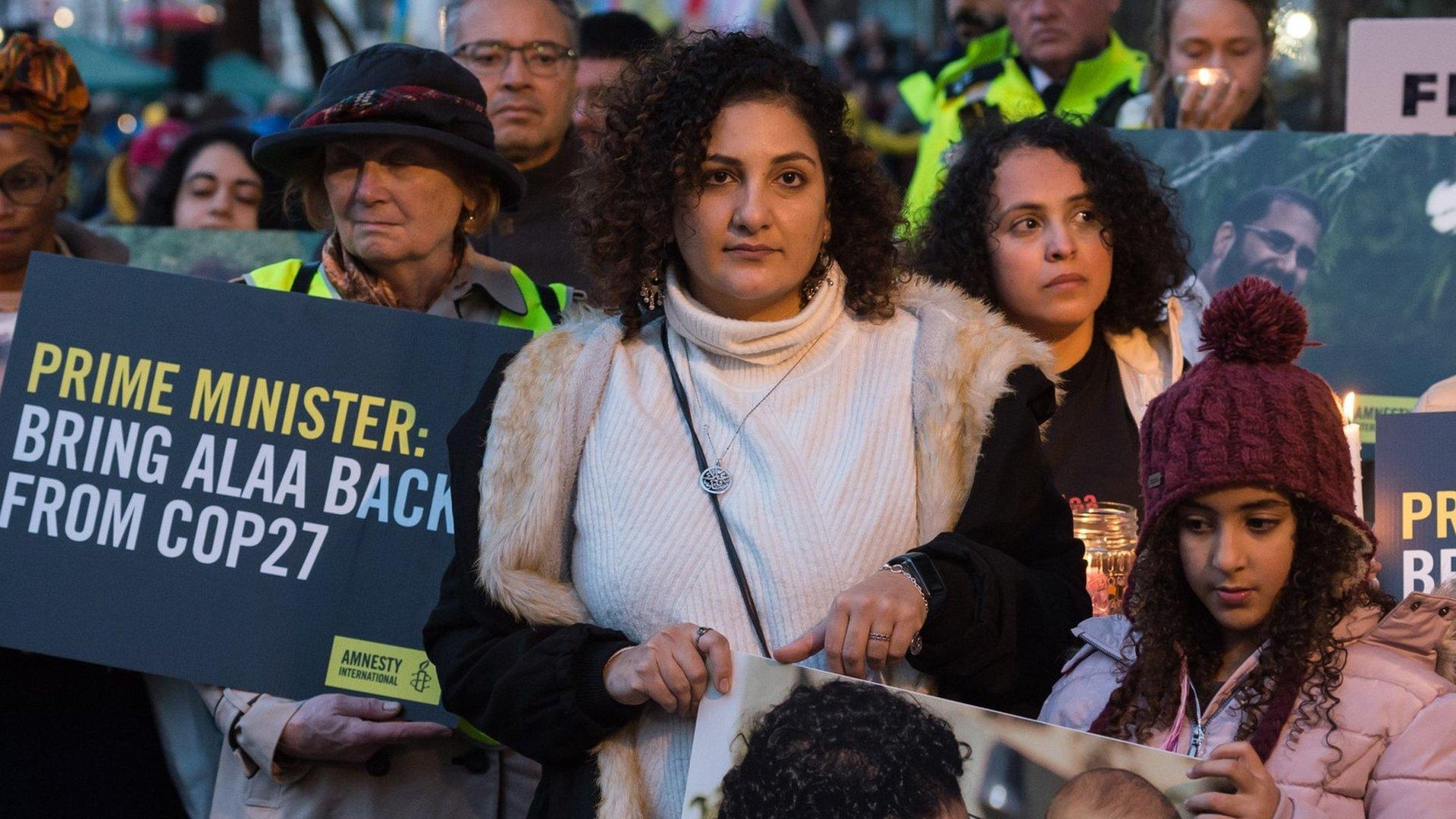
- Published1 November 2022
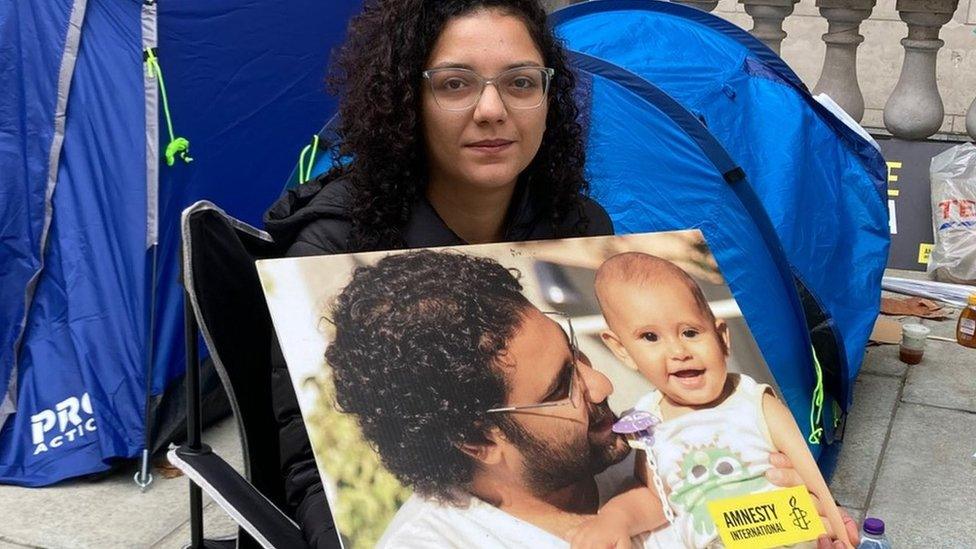
- Published21 June 2022
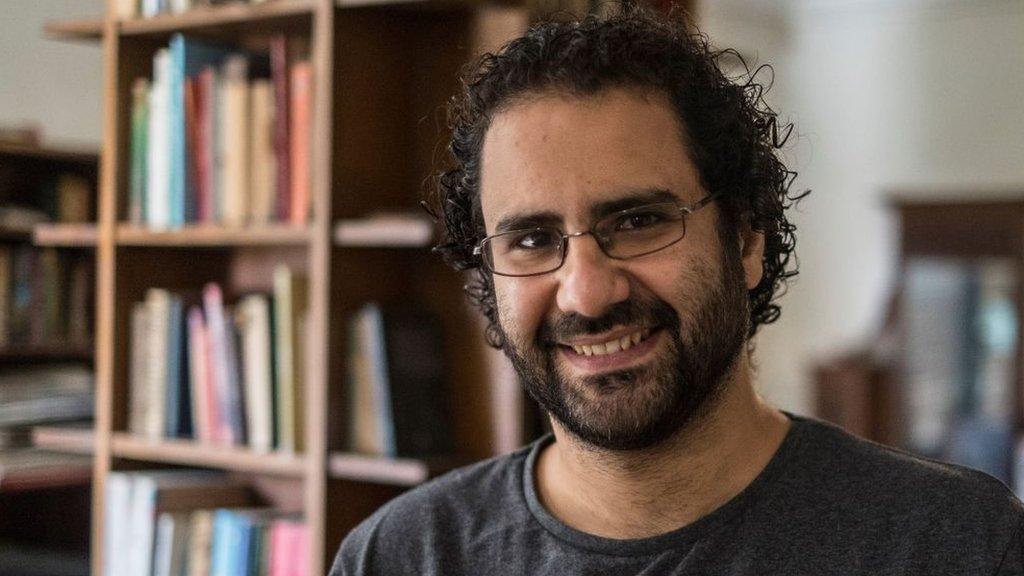
- Published18 May 2022
